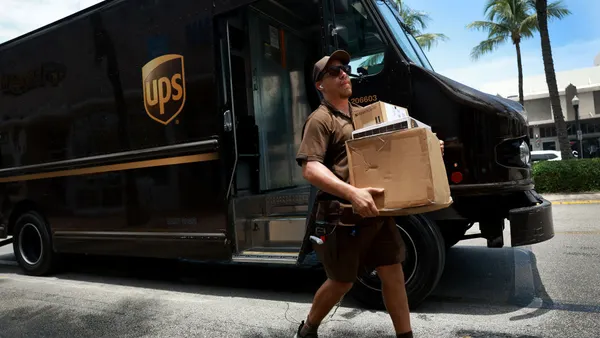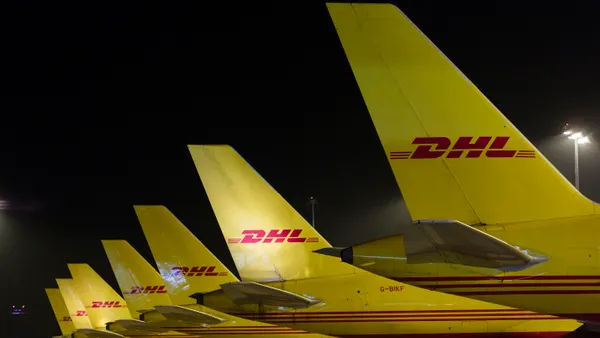Dive Brief:
- Dedicated fleets, a system wherein trucks are hired to drive only for specific shippers, have expanded within the past twelve months, despite the fact that most large trucking companies are culling their vehicles, the Wall Street Journal reported last week.
- An ongoing case of weak transport demand is contributing to the appeal of dedicated fleets, even if the possibility of missing out on rate increases is part of price they pay for guaranteed work.
- Capacity could shrink further as a result of the December 2017 safety mandate requiring truckers to shift to electronic record logging rather than handwritten records, which will eliminate the chance to exceed hourly limits by altering paperwork.
Dive Insight:
Dedicated trucking fleets account for roughly $40 billion of the $280 billion truckload market with growth potential on the rise. The benefits for both shippers and fleets are numerous: shippers receive a guarantee of transport even during peak seasons, plus a lower over all price, while carriers can avoid the usual cycling, or seasonal ups and downs, normal within any industry.
Dedicated fleets also allow carriers to focus on more demanding areas of the business, such as finding, training, and keeping qualified drivers; equipment maintenance and upgrades; sourcing fuel and enhancing safety training. A shipper's ability to avoid the headaches associated with fleet upkeep makes hiring an outside team desirable, and also allow it to concentrate on the logistics involved with maintaining a successful relationship with its customers.
However, there is a cost to this business certainty. The capital investment into a trucking fleet is considerable, as is the associated costs, including insurance and maintenance. Furthermore, if an industry cannot guarantee that its fleet will be in regular use, dormant trucks and unused space can quickly erode the bottom line.












